'Unfortunately people lose jobs when teams get relegated... that's the harsh reality of professional sport'

Mick Hogan doesn’t beat about the bush. End-of-season demotion from the Gallagher English Premiership would suck for Newcastle and have some severe consequences.
“Unfortunately people lose jobs when teams get relegated, whether that is staff, whether it is players or whether it is coaches, whatever. But we know that and that is what we have got to deal with,” he told RugbyPass.
“No job is guaranteed in life, never mind in sport. That’s the harsh reality of it. The fans can come back next year and decide whether they want to support the club or not. For a lot of people it will end their involvement with the club as an employee, but that is the harsh reality of professional sport, isn’t it?”
Newcastle head into Sunday’s bottom-two showdown on the back of five successive defeats. They’re nine points behind the visiting Worcester and have only eight matches left to save themselves. In a region of England where Falcons are the sole professional rugby outlet, it’s clearly squeaky bum time if they are to preserve their top-flight status.
It’s 21 years since the region was last top of the pile, its shop window shining with Newcastle winning the league in 1998 and neighbours West Hartlepool fighting the good fight in those early years of professionalism.
The Westies are no more. They’re scratching around these days in Durham/Northumberland 1, the seventh tier of the English league system. Meanwhile, Falcons are still figuring ways to financially better wash their face in an area where rugby is down the sports popularity pecking order. That’s a status which won’t be helped by losing Premiership exposure.
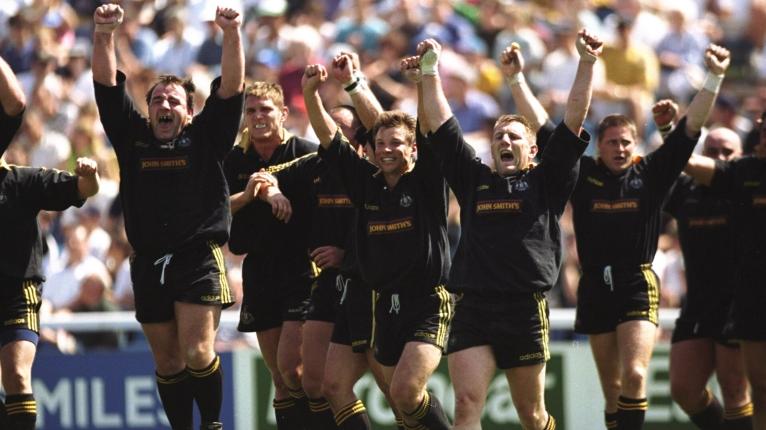
“It’s huge and that’s one of the downsides of relegation,” admitted a concerned Hogan, the club’s managing director since 2014. “It doesn’t just put you out for the season that you’re down there. You also need another season just to get (Falcons rugby) back into peoples’ psyche and mindset, so it might take two, possibly three seasons. It puts you back.
Rugby followers of the North East and surrounding areas, your support is needed this Sunday when Newcastle Falcons host Worcester Warriors in one of the biggest games Kingston Park Stadium has seen in years. Book your place and cheer on the lads via https://t.co/t5EklSso9F? pic.twitter.com/Fh9SUPfAtA
— Newcastle Falcons (@FalconsRugby) February 26, 2019
“That is the rules of the competition. We have known that all along and if that [relegation] was to happen we will have deal with it… we have got probably the least amount of rugby played in the region than anywhere else in the country and I stand by a couple of things.
“One is football (dominates) and the other is there isn’t the population up here in Northumberland, Durham and Cumbria that there is in other parts of the country. We have one of the biggest geographical areas but we have actually the lowest number of chimney pots. It’s a challenge to produce players from that, but also to produce supporters.”
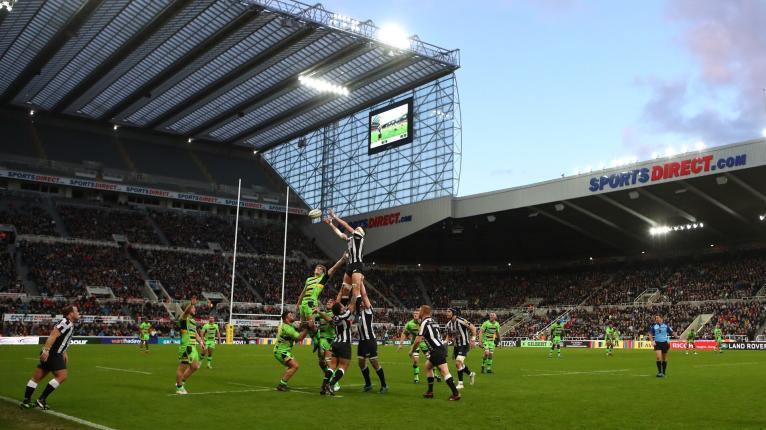
This necessity to create some glitz and glam about the sport is why the authorities have thought big in promoting rugby to the masses at nearby St James’ Park. In the next seven months alone, the 52,000 capacity Newcastle United football mecca will host Falcons in a Premiership match (they had an attendance of 30,174 last season), an already sold-out Champions Cup final, the Challenge Cup decider and an England-Italy international.
That’s quite an attractive playlist and Falcons will hope to reap some benefit of this greater interest back at their own Kingston Park – regardless of whether they remain in the Premiership or not. “If you inspire people through the big game strategy you have got somewhere for them to go and retain the interest in the sport,” continued Hogan.
Whatever your thoughts are on Premiership promotion/relegation a strong argument has been made here to @heagneyl ??? https://t.co/7e3Z6tSH7Z
— RugbyPass (@RugbyPass) March 1, 2019
“The long term vision of this club is that in five, 10 years’ time we want a stadium that holds 15,000 people, we want community pitches because we purchased the stadium three years ago and bought a number of additional fields as well.
“We want a second 3G pitch, we want two new stands in here, we want Premiership Rugby, we want Super League here, we want a women’s team here, we want disabled teams here more, we want this site – Kingston Park – to become base centre for rugby in the region.
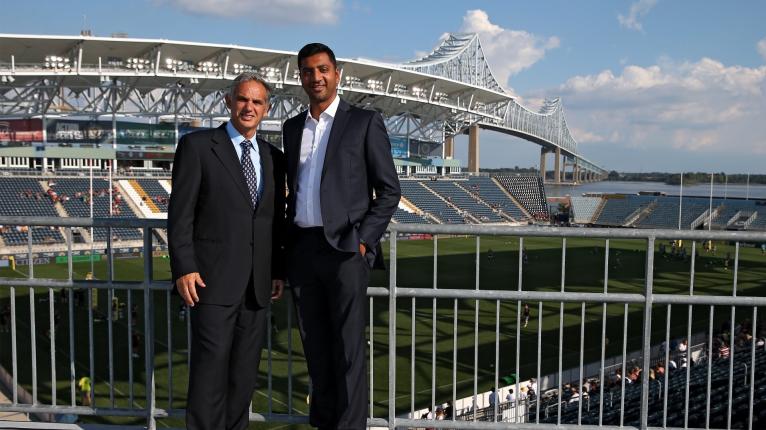
“That is a centre of excellence if you’re playing at an elite level, but it’s also a community facility if you want to come along and get involved in whichever way you want you can… you know that Kingston Park has a place for you as well. It just becomes a hub for rugby across the north-east of England.”
It was 2012, eight months after Semore Kurdi secured majority ownership, that Newcastle were previously relegated from the Premiership. Kurdi’s faith in the project isn’t wavering, despite the growing threat of a return to the Championship where the one crucial difference compared to their last demotion is that play-offs have been scrapped, meaning the league can be won months before the end of a campaign and give the promoted club invaluable extra weeks to prepare to go up.
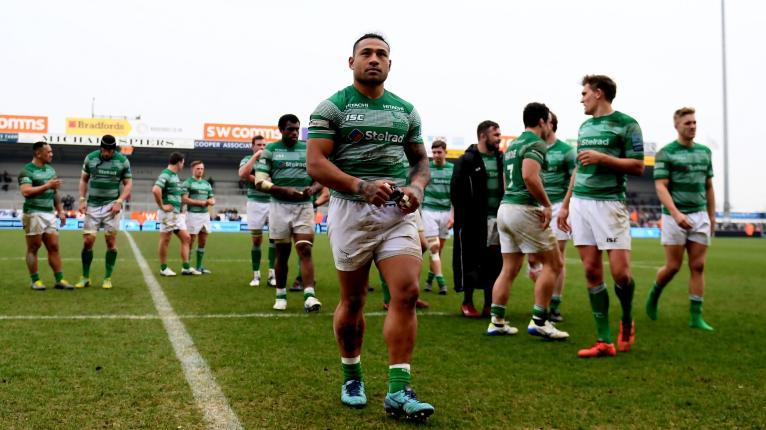
“He’s still very positive and, as we mentioned, it’s about the long-term vision of what we’re trying to achieve up here. If the club were to be relegated it would be a setback, but it would be a setback for any club that gets relegated. It just presents different challenges to different clubs, but what it doesn’t do is affect our long-term aim and that vision of the club and where we want to get to.
“Our central funding doesn’t radically change if we drop out of the Premiership because of the way the share structure is within Premiership Rugby. But obviously if we weren’t in the Premiership you see certain revenue streams go down, mainly ticket sales, hospitality and sponsorship.

“You have got to be able to react to that. You have got to be able to work just as hard if not harder and there is no reason why you can still be at a level you were at previously. Yes, there would be adjustments made. There would be adjustments made to the business side, but it’s not radical adjustments and we have got a long-term vision of where we want to take the club and that hasn’t changed.”
Newcastle were felt to have turned an on-field corner last year with a rare fourth place finish and qualification for the Champions Cup for the first time since 2004/05. But scratch the surface and the rub of the green they got was obvious. Four games were won by a point, a further three in the last minute.
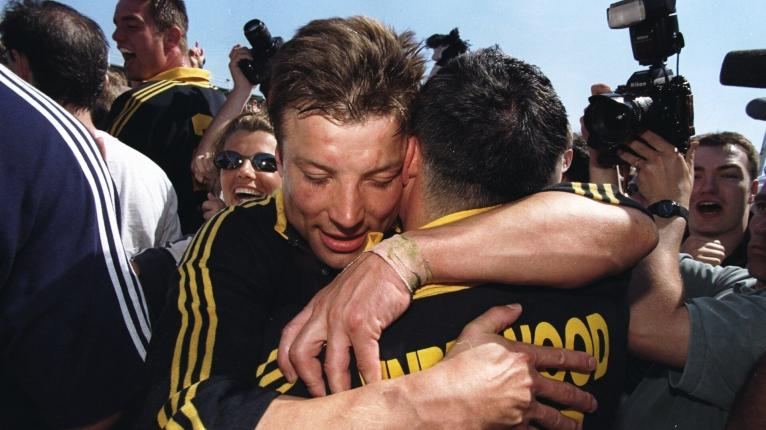
This good fortune has eluded them this term, leaving them precariously placed with Worcester visiting the city on banks of the Tyne. “I’m pretty nervous because it means quite a bit to me and all the other staff here, but it means a lot to our supporters as well so it’s that nervousness. It’s not that nervous excitement, it’s nervous fear as well.
“It’s the first of eight cup finals for us. Eight games to stay in the Premiership. I do believe if we win four of our five home games and pick up the odd win or a few bonus points away we will have enough in that – but we have got to get that. We have some tough games coming up, but it’s in our hands. If we win all eight we will probably be in the top six, but we have got to do it.”













































